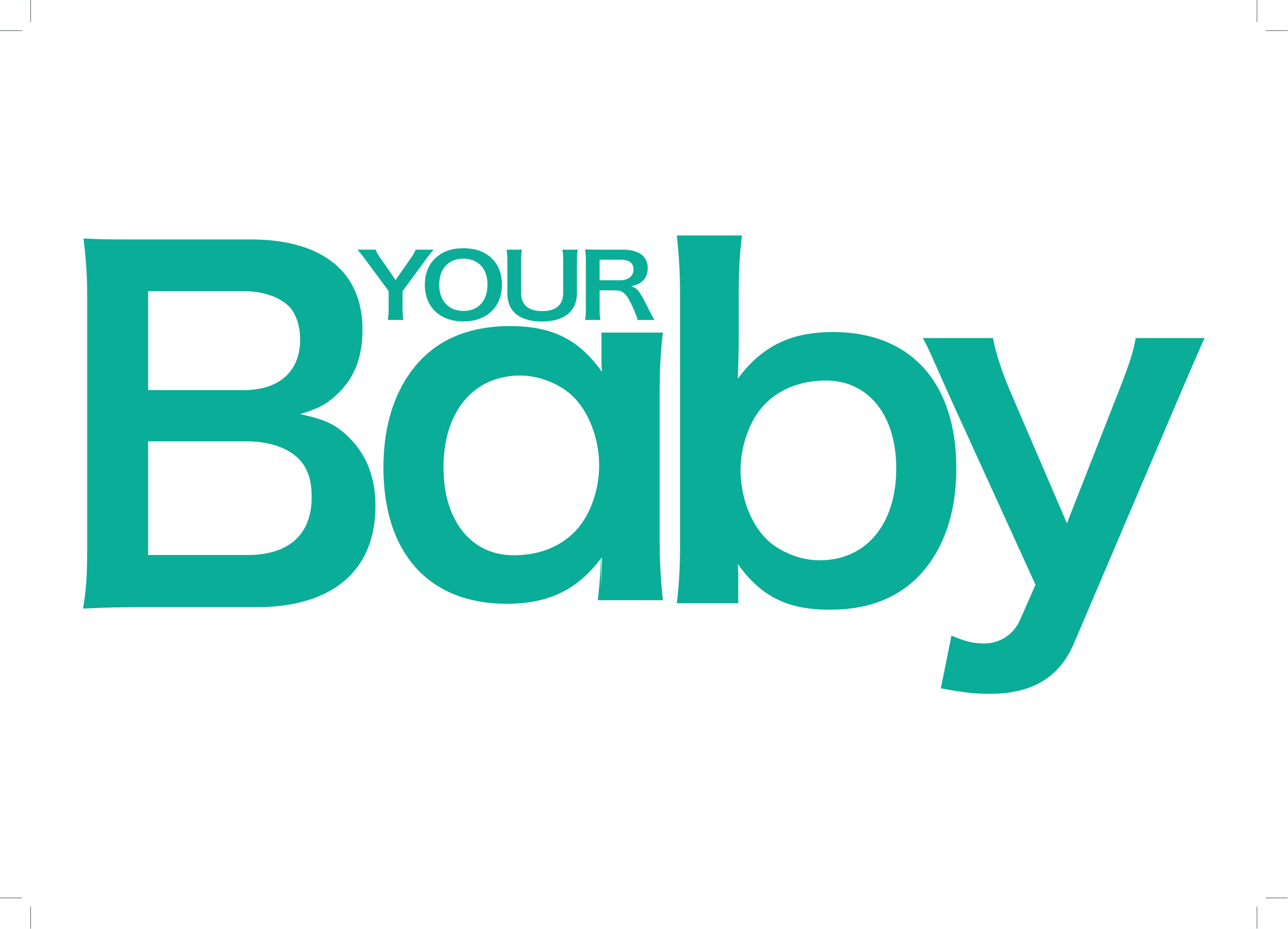
It’s most exciting to watch your baby turning from a helpless bundle into an independent little individual with a personality all her own.
Why milestones?
Many parents worry that their child isn’t making progress “on time”. The best way to make sure that your baby is on track with her developmental milestones is to take her for regular check-ups with your paediatrician or baby clinic sister.
Go for regular check-ups
They’ll check your baby’s physical development, weigh and measure her, observe her and chat to you about her progress and what you should be doing to help (including checking up on her diet, especially as she moves on to solids).
Development milestones are only a guideline
Keep in mind that developmental milestones are worked out at the average age at which children acquire new skills, which means that many babies acquire the skills later, and many acquire them earlier. They are intended to serve as a guideline only, and not as a rule. Babies develop at their own pace, and a slightly slower development than average is not a reflection on her future abilities.
Development starts at the head and works its way down
At the same time, realise that because your baby is an individual, it’s quite likely that she might be simultaneously a very early talker but equally a late walker, for example. Don’t fret!
It’s also helpful to understand that development starts at the head and works its way down through the body in a specific order. Your baby won’t acquire one skill before she’s developed the specific muscle control and thinking patterns that this skill needs.
How to booster development
In real terms, this means that while you can of course stimulate your baby, you can’t push her to acquire skills she’s not ready to develop. What you can do, however, is take time to play creatively with your baby, and spend lots of time in communications – both talking and listening.
Read to her, sing songs and say nursery rhymes, and babyproof certain areas and give her the freedom to explore them. Be physical with your baby: touch her, hug her, tickle her, massage her...
Consistently delayed milestones
If you do feel your baby’s milestones are consistently delayed, talk to your doctor. There may be an underlying reason for the delay, and if this is the case then the sooner you identify the cause and take action, the better.
For example, delays in talking may be linked to hearing loss and if this is the case, then once you have discovered this and taken action, your baby can start to catch up. Above all – enjoy your little one in these early, all-important months. The time will go by so quickly and when her first birthday arrives, you’ll look back in amazement at how far she’s come and how time has flown.
See Developmental milestones: newborn to 12 months
12 months
Physical development
- By 12 months, she’s crawling confidently
- She also pulling herself to a standing position and may be able to walk holding onto furniture or your hand – or even unassisted
- She points to what she wants and can pick up a small object with her thumb and index finger
- Now is the time to baby-proof your home if you haven’t already done so!
- She can get to a sitting position from her stomach
- At 12 months, she can hold different objects in each hand
- She’ll offer you a toy
- By 12 months, she should have regular sleep times and patterns
Feeding needs
- If there’s a history of food allergies in your family, stay away from wheat, dairy, nuts, eggs, seafood and other potential allergens till at least 12 months
- At 12 months, your baby can eat just about anything that the rest of the family eats (as long as there’s no history of allergens)
- Continue to be careful when your toddler eats and beware of her choking
- Offer water or diluted juice and give it in a cup and not a bottle
- She’ll start to have food preferences now and knows what she likes and doesn’t
- Look for fortified cereals, with added vitamins and minerals
- Remember that toddlers are erratic eaters and not likely to eat regular amounts every day
Emotional, social, talking
- At 12 months, she is sociable but wants to be near you
- She’s formed strong attachments to other important caregivers
- She recognises and responds to her name
12 to 18 months
Physical development
- At 15 months she can crawl upstairs
Emotional, social, talking
- She’s babbling tunefully now, using the rhythms of speech
- She shows affection, for example by smiling and hugging
- She imitates you and might be possessive
- She babbles loudly and may use a few words (“Dada” often comes first)
- She listens carefully to you and understands simple instructions
- She drops or throws things to watch them fall
- Separation anxiety peaks between 12 – 14 months and you may have to learn some separation tactics to decrease her stress (every baby is an individual)
- She enjoys picture books and stories and tries to turn pages in a book
- She helps with dressing (for example by raising her arms)
- She may get upset and frustrated if she can’t manage something
18 to 24 months
Physical development
By 18 months
- She can point to her nose, eyes and so on
- She can build a tower of 3 cubes and scribble with a crayon
- She carries large, light objects
- She goes backwards down the stairs
- She can pick up small objects with her thumb and index finger
- She can hold 2 items in one hand
- She’s walking well and may even have started running (though not very steadily!)
By 24 months
- She’s running steadily and can walk backwards
- She’s climbing on and off furniture
- She can throw overhand and kick a ball
- She favours one hand when drawing
Feeding needs
- Avoid processed foods, salt, sugar and fat – and be aware of these ingredients hidden in ready made foods that you may buy, including baby foods
- You child should have at least 3 servings of fruit or vegetables every day until she’s about 24 months old
- Remember that a serving should be child-sized: half a banana, 1 to 2 tablespoons of peas or carrots
- Children have small tummies and may prefer to eat 5 small meals rather than 3 bigger ones
- Continue to offer new foods and if she’s fussy, don’t bargain or argue about food issues
Emotional, social, talking
- At 18 months, she’s using around 20 words but understands a lot more
- She might make 2-word phrases (“Daddy come” or “more juice”)
- She can understand many simple instructions (she might not obey them!)
- By 24 months, the most important relationship in her life is still with you, but she’s showing more interest in interacting with her peers
- She enjoys the company of other children, but plays near them, not actually with them (it’s called “parallel play”)
- She’s growing in independence, but sometimes gets frustrated and you might start seeing tantrums
- At 24 months, she’s using between 50 and 300 words, and forming simple 2 or 3 word sentences
24 to 36 months
Physical development
At 24 months
- Can use a plastic sit-on bike or car and push with her feet
- She can build a tower of 6 blocks and enjoys simple puzzles
- She’s moved on to 1 nap, in the afternoon
At 30 months
- Her birth weight has quadrupled and her brain is 90% of its adult size
- She can walk upstairs, jump, kick a ball and climb a ladder or a simple jungle gym
- She should be out of day time nappies
At 36 months
- She walks upstairs alternating her feet but still goes downstairs putting both feet on each step
- She can wash her own hands and help you when she’s getting dressed and undressed
- She builds a tower of nine or more blocks
- She draws a figure with a head and some features
- She’ll probably start to drop her daytime nap some time this year
Feeding needs
- Continue to offer nutritious food choices. If she’s fussy, concentrate on giving her the healthy snacks that she likes
- Remember to give a balance of protein, carbohydrates, vegetables, fruit and dairy
- It might be easier for you to concentrate on making sure your toddler eats well-balanced meals over the space of a week rather than a day
- A growing up milk or vitamin supplement will also help you to set your mind at ease that she’s getting what she needs
- By the age of 36 months, a healthy diet for a child is similar to that of an adult’s: lots of vegetables and fruit, complex carbohydrates, enough lean protein, dairy products, not too much sugar, fat and salt
- By the time she’s 3 years old she can feed herself competently with a spoon or fork – happy mealtimes
Emotional, social, talking
- She joins in songs and rhymes, asks the names of objects and plays simple make-believe games
- By 30 months, she’s more outgoing
- She still sees things from her point of view
- She uses about 200 words and starts to use “I”, “you” and “me” correctly
- She asks “what?” and “why?”
- She knows simple songs, nursery rhymes and games
- By 36 months, she is playing with other children, not just alongside them
- She enjoys helping you with chores and starting to understand and feel sorry for a playmate who’s hurt
- She may know as many as 800 words and can carry on a simple conversation
- She knows some shapes and colours as well as simple concepts of size, numbers and time




 Publications
Publications
 Partners
Partners














